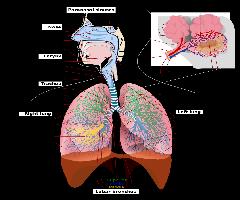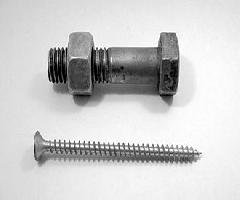College life can be tough. Here is some of my tips on how to survive it.
Networking with Other Students. It can be lonely out there, so why not make friends on campus? Observe who is in more than one of your classes; those students probably share some of your goals and interests. Compare your courses of study and ask about their plans after they finish their training. Note announcements of get-togethers organized by major field of study, and attend with a friendly attitude. This may help you become aware of students who are in the same boat with
you, even if you didn't notice them before. Getting used to networking with other students will help prepare you for networking to find a job after you complete your training program.Getting to Know Your Instructors. It is important to have peers for moral support and fun, but it's just as important to get to know your instructors. Being just a number to them will do you no more good than taking a correspondence course. When instructors know you personally, chances are you will learn more from their classes. You can approach them with questions that are too time-consuming or off the main subject to ask in class. You will discover that they are flesh and blood, not just robotic dispensers of knowledge, and knowing this will enrich your educational experience. After a class has met once or twice, find out your instructor's schedule and office location. Make a point to drop by the office at least twice a month, even if it's just to chat about how things are going for you. Look for notices from student organizations announcing special social times to gather with instructors. Remember, they were students once, too.
Studying for Exams. Try to budget your study time so you don't have to cram for an exam. Pulling an all-nighter is not a red badge of courage in education. Studies show that you will study less effectively and perform worse on tests when you are tired.
Set up a reasonably neat study area and make sure:
1.Your lighting is good.
2.You have plenty of pens, pencils, Post-It notes, and highlighters.
3.Your telephone isn't going to ring with a tempting offer to blow off the
4.You have a comfortable chair and posture
5.You're not going to be distracted by lyrics or awesome bass if you enjoy listening to music while you study
Of course, your notes are already in order, well-titled, clear, and concise. You've also been using your handy highlighter in the textbooks to capture key information, right? Ask your instructor about the exam format: essay, multiple choices, lab, or one of the many other methods of testing. You probably won't take many essay exams in your coursework; you probably will encounter a lot of multiple-choice and lab (hands-on) tests.
Making the Most of Your Career Placement/Counseling Office. There are squadrons of people out there who have made it their job to run career placement and counseling offices just for students on campus. That includes you. Don't shun their efforts. Make the career placement office one of the first places you visit when you set foot on campus, and include it on your list as you're making rounds to the instructors' offices. Read the posters and notices on the walls. Start by asking general questions to get a feel for the office. Focus on interacting with one particular person-just as you do with your instructors-so you aren't just a number. If one staff person takes an interest in your situation, he or she will be able to give you more personalized help and more detailed information.
Not every placement office works the same way. Most offices participate in career fairs and distribute candidate position lists. Career fairs are generally held in large buildings, such as hotels or convention centers. They are a great opportunity to learn more about companies in the field and trends in the marketplace, get experience interviewing, and find a job.
note: originally posted at Exposeknowledge.com under the same author.




